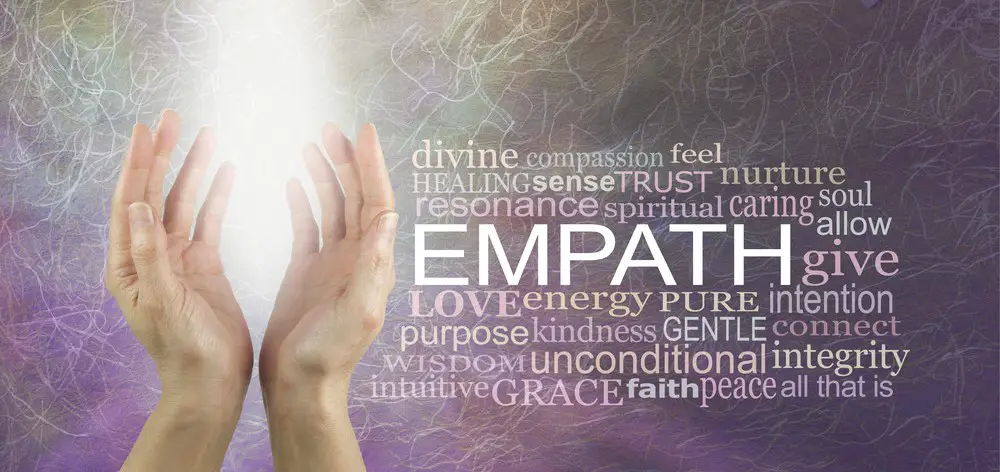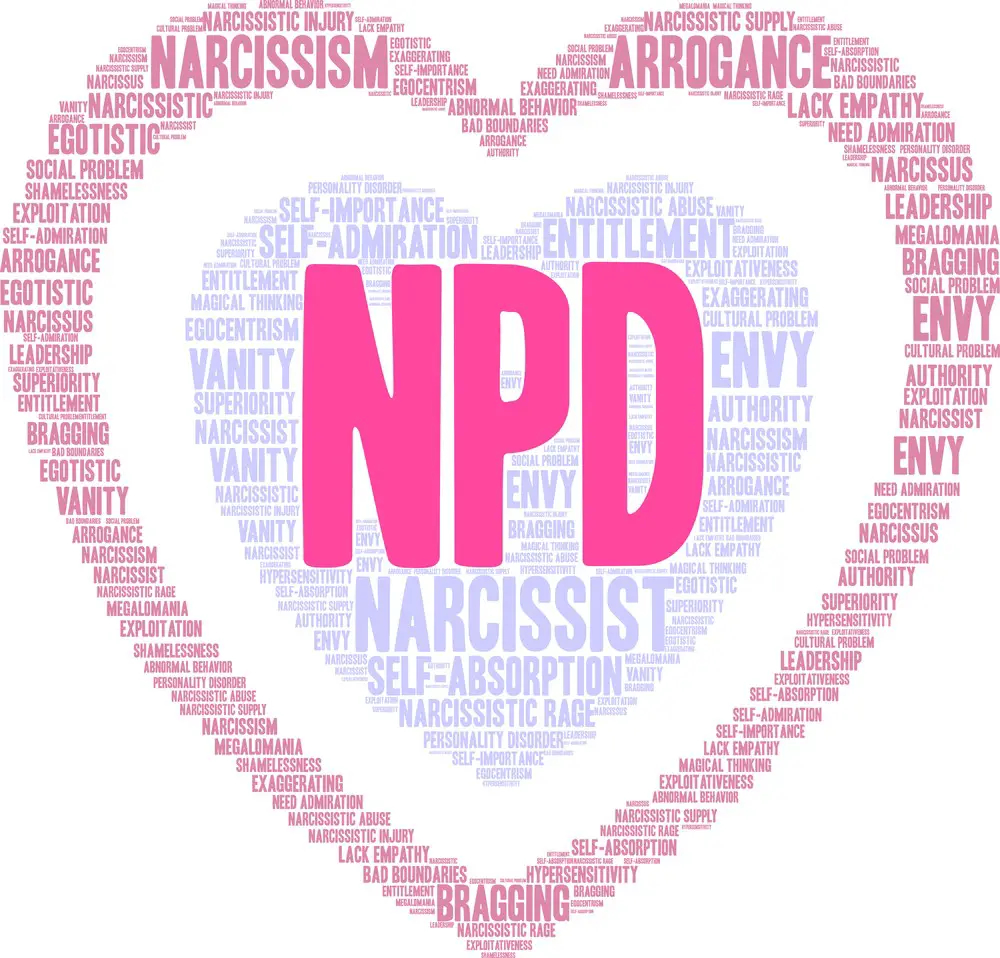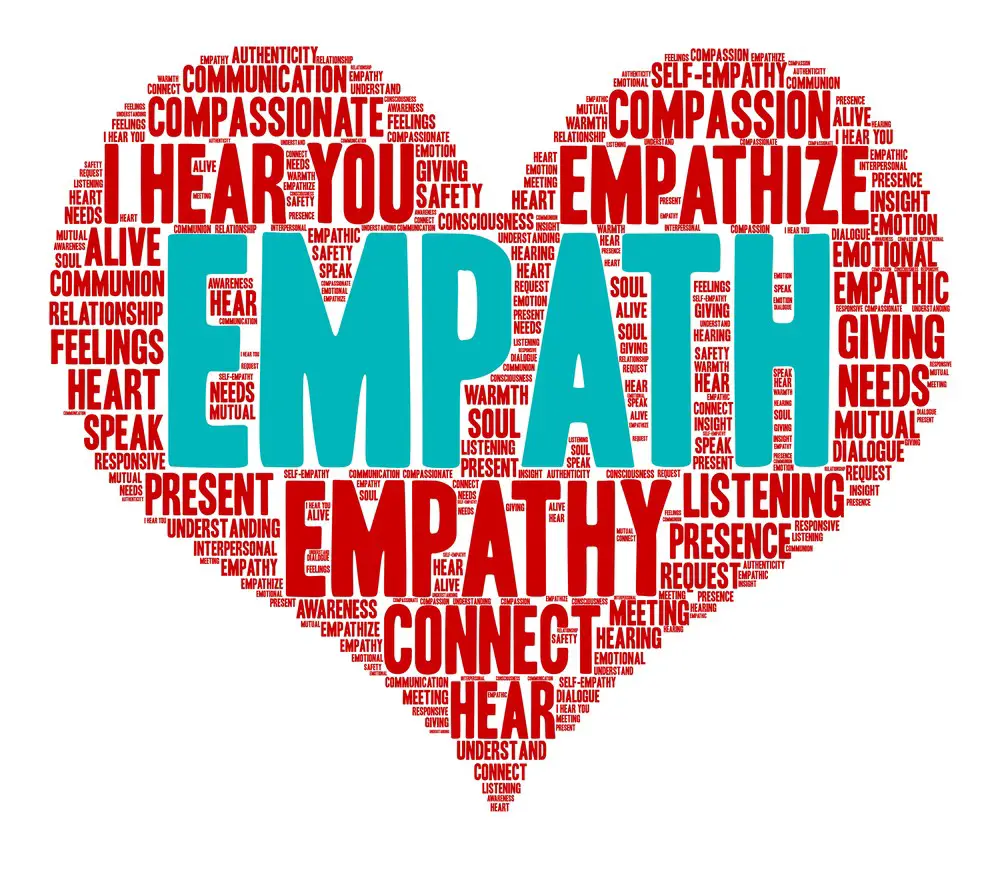As a BetterHelp affiliate, we receive compensation from BetterHelp if you purchase products or services through the links provided
Empaths and narcissists are often seen as opposites, but their interactions can make for a complex and intriguing topic. At one end of the spectrum, empaths possess the ability to understand the feelings of others intuitively and are deeply compassionate, often putting the needs of others before their own. Conversely, narcissists exhibit an inflated sense of self-importance, craving attention and adoration while lacking empathy for others. Understanding these characteristics is essential to navigating relationships involving these two personality types.
When empaths and narcissists become involved in relationships, it can lead to challenges and emotional turmoil for both parties. For empaths, being constantly exposed to a narcissist’s self-serving behavior can make it challenging to maintain their emotional well-being. The relationship dynamics between an empath and a narcissist require careful examination, so one can learn how empaths can protect themselves and help the narcissist grow, fostering a healthier relationship for both parties.
Key Takeaways
- Empaths and narcissists possess contrasting personality traits, leading to complex relationships.
- Empaths need strategies to maintain their emotional well-being when encountering narcissists.
- Understanding the different types of narcissism can help foster healthier relationships.
Understanding Empaths and Narcissists
Defining Empaths
Empaths are individuals who possess a heightened level of empathy and sensitivity toward the emotions and feelings of others. They can often understand and share the experiences of those around them. Empaths tend to have a strong sense of compassion, which drives them to help and support others.
Some key traits of empaths include:
- Intuitive: They can sense the emotions of others without explicit communication.
- Highly sensitive: Empaths are more sensitive to the emotions and energy of others, which can be both a gift and a challenge.
- Compassionate: They are genuinely concerned about the well-being of others and often feel compelled to offer support.
Defining Narcissists
Conversely, narcissists exhibit a pattern of grandiosity, lack of empathy, and a need for admiration. Narcissistic personality disorder (NPD) is a diagnosable mental health condition characterized by these traits. However, not all narcissists have the disorder, as narcissism can also be a personality trait.
Some key traits of narcissists include:
- Grandiosity: They have an exaggerated sense of self-importance and often believe they are superior to others.
- Lack of empathy: Narcissists struggle to understand or share the emotions of others, making it difficult for them to have genuine connections.
- Need for admiration: They crave attention and validation from others to maintain their fragile self-esteem.
In the context of empath-narcissist relationships, it is essential to recognize these differences and acknowledge the challenges that may arise due to their varying levels of empathy and understanding.

Characteristics of Empaths and Narcissists
Traits of Empaths
Empaths are individuals who possess a heightened sensitivity to the emotions and feelings of others. They have an innate ability to understand and feel emotional experiences deeply. Some common traits of empaths include:
- High sensitivity: Empaths are susceptible to their environment and the emotions of others. They can easily pick up on subtle changes in people’s moods or attitudes.
- Compassionate: Empathetic people tend to be extremely caring and considerate, often prioritizing others’ well-being over their own.
- Intuitive: Empaths often have a strong intuition, allowing them to sense things others may not notice.
- Good listeners: Empaths are generally attentive and focused in conversations, making them good listeners.
Traits of Narcissists

On the other hand, narcissists have an inflated sense of self-importance and a deep need for admiration. They often lack empathy and struggle to form meaningful connections with others. There are two main types of narcissists: grandiose and vulnerable. Their traits include:
Grandiose narcissists:
- Self-centered: Grandiose narcissists have an exaggerated sense of self-importance and believe they are superior to others.
- Attention-seeking: They crave attention and admiration from those around them to feed their ego.
- Manipulative: Grandiose narcissists often use others for their benefit, disregarding others’ feelings or consequences.
Vulnerable narcissists:
- Insecure: Vulnerable narcissists feel a great deal of anxiety and insecurity, which they try to compensate for with their narcissistic behavior.
- Hypersensitive to criticism: They cannot handle even the slightest criticism or perceived rejection, often reacting with anger or defensiveness.
- Mood swings: Vulnerable narcissists can have unpredictable moods and be emotionally volatile.
While the traits of empaths and narcissists are quite different, it’s crucial to recognize and understand these characteristics to navigate relationships with such individuals. Being aware of these personality traits can ultimately help prevent potential instances of abuse or manipulation.

Understanding Narcissist and Empath Relationships
Attraction Between Empaths and Narcissists
In a relationship between a narcissist and an empath, there is often a strong, almost magnetic attraction. Empaths are naturally compassionate, empathetic, and caring individuals who desire to help others and crave deep emotional connections. Conversely, narcissists have a striking lack of empathy and an insatiable need for attention, validation, and admiration. These two personalities may appear to be opposites, but they can create a powerful and destructive dynamic in a relationship.
Initially, the narcissist’s charming and charismatic demeanor may pique the empath’s interest, making them feel special and important. However, as the relationship unfolds, the narcissist’s hidden traits become evident, including their constant need for attention and inability to feel shame or empathy.
How Narcissists Benefit from Empaths
Narcissists exploit the empath’s compassionate nature to their advantage. They do so through various tactics, such as gaslighting and manipulating the empath into questioning their reality and experiences. This control allows the narcissist to maintain a sense of superiority and power in the relationship, feeding their ego and need for validation.
In their attempts to help and encourage change in the narcissist, the empath often becomes an unwitting enabler. Despite continued emotional abuse and manipulation, they may continuously forgive and support their partner. Furthermore, the empath’s desire to assist their partner may lead to self-sacrifice and neglect of their needs, reinforcing the narcissist’s belief that they are the center of attention.
In some cases, therapy may be sought by the couple as a means to address and resolve these problems. If the narcissist is willing to engage in therapy and make a genuine effort to change, the relationship may have a chance at success. However, if there is no genuine commitment to change on the narcissist’s part, a breakup may be the best action for the empath to protect their emotional well-being.
During the breakup process, the empath must prioritize self-care and establish boundaries with their former partner. Seeking support from friends and understanding that the end of this relationship may be a necessary step toward healing is crucial. It is important to remember that recovery from a narcissistic relationship can be challenging, but focusing on one’s well-being will eventually lead to a newfound sense of balance and emotional health.
Challenges Faced by Empaths in Narcissist Relationships
Manipulation and Emotional Abuse
Empaths often find themselves in relationships with individuals who have a narcissistic personality disorder. These toxic relationships can be complex for empaths due to narcissists’ manipulative and emotionally abusive behavior. Narcissists often take advantage of empaths’ caring nature and willingness to help others, using them to fulfill their own needs and desires while disregarding the feelings or needs of their empathic partner.
Empaths may find it challenging to express their hurt or concerns about the narcissist’s behavior, fearing that it will only lead to further manipulation or emotional abuse. Over time, this can cause emotional and mental distress for the empath, making it difficult for them to find the strength and courage to protect themselves from the abuse.

Codependency and Boundaries
Another significant challenge empaths face in relationships with narcissists is the development of codependency. Due to the empath’s natural desire to care for and support others, they may become increasingly reliant on the narcissist for validation and emotional support, despite the abuse they experience. This codependent behavior can prevent empaths from maintaining healthy boundaries and prioritizing self-care, ultimately exacerbating the harmful effects of the toxic relationship.
To cope and protect themselves from the harm caused by narcissistic relationships, empaths may need to seek the guidance and support of a therapist or other mental health professional. With the help of a professional, empaths can work to recognize and overcome codependent behaviors while learning to establish and maintain healthy boundaries with those who suffer from a narcissistic personality disorder. This can be a crucial step in allowing empaths to thrive and foster healthier relationships in the future.
How Empaths Can Protect Themselves in Narcissist Relationships
Establishing Healthy Boundaries
Empaths can protect themselves in a toxic relationships by establishing healthy boundaries. This involves communicating their needs, desires, and limits to their narcissistic partner. By doing so, they can create a safe space that prevents further emotional hurt. In addition, setting boundaries can help empaths maintain their self-esteem and reduce feelings of guilt or shame, which narcissists often use to manipulate them.
Seeking Professional Help
One of the essential steps in protecting oneself from a narcissistic relationship is seeking professional help. A qualified therapist can provide the necessary resources, guidance, and support for the empath to navigate this challenging situation. They can help identify the red flags, dangers, and patterns of narcissistic abuse and develop strategies for recovery and healing.
Developing Emotional Intelligence
Developing emotional intelligence is crucial for empaths in their journey of self-protection and recovery. This means becoming aware of and managing their own emotions, as well as understanding the feelings of others. By strengthening their emotional intelligence, empaths can protect themselves from being caught in narcissists’ manipulative and controlling tactics. Furthermore, emotional intelligence empowers empaths to recognize the unhealthy dynamics in the relationship, allowing them to effectively address and cope with any guilt, shame, or pain they may experience.
Understanding Different Types of Narcissism
A strong sense of self-importance, entitlement, and a need for admiration characterizes narcissism. Narcissistic Personality Disorder (NPD) is an extreme form of these traits. This section will discuss two types of narcissism: Grandiose Narcissist and Vulnerable Narcissist.
Grandiose Narcissist
A Grandiose Narcissist, often considered the “classic” narcissist, exhibits excessive self-importance, and they tend to:
- Dominate and control: These individuals can be controlling and may abuse others to maintain their position of power and authority.
- Lack of empathy: They struggle to understand or care about the feelings and emotions of others, which can lead to manipulation and harm.
- Exhibit arrogant behavior: They may display an air of superiority or condescension to reinforce their sense of self-importance.
Key personality traits of a grandiose narcissist include:
- Overconfidence
- Exaggerated achievements
- Envy of others and believe that others are envious of them
Vulnerable Narcissist
The Vulnerable Narcissist is another type of narcissism, which can be characterized by:
- Low self-esteem: Unlike the grandiose narcissist, the vulnerable narcissist has a fragile sense of self-worth and may be highly sensitive to criticism.
- Mimic empathy: They are likely to fake empathy to blend in socially, obtaining admiration and validation from others.
- Exhibit passive-aggressive behavior: They may use covert tactics, such as sulking or guilt-tripping, to manipulate others and protect their fragile ego.
Some personality traits associated with vulnerable narcissists are:
- Insecurity
- Hypersensitivity
- Pessimism
Understanding these two types of narcissism enables us to recognize the distinct patterns of behavior and personality traits associated with NPD. This understanding can help identify possible narcissistic abuse and seek appropriate support or intervention.
Helping Both Empaths and Narcissists
Therapy and Support
For both empaths and narcissists, enlisting the help of therapy and support is crucial to fostering change and growth. Professional therapists can provide guidance, tools, and techniques to help individuals effectively understand and manage their emotions. Empaths may benefit from learning to establish boundaries, while narcissists can develop a sense of responsibility for their actions and emotions.
In addition to professional therapy, support groups, and online communities may offer valuable resources and connections for those seeking understanding and encouragement. Surrounding oneself with individuals who share similar experiences and provide kindness, praise, and respect can significantly assist the journey toward self-improvement.
Encouraging Compassion and Communication
Compassion and communication are essential for empaths and narcissists to foster healthy relationships. Developing emotional intelligence is critical, as it allows individuals to regulate their emotions and better understand the feelings of others.
For empaths, this means differentiating their emotions from those of others and using empathy without feeling overwhelmed. On the other hand, narcissists can focus on improving their listening skills and genuine interest in the emotions and needs of their counterparts, leading to more respectful and balanced interactions.
To foster effective communication, both parties can practice the following:
- Active listening and paraphrasing to ensure understanding
- Applying non-violent communication techniques
- Respecting each other’s boundaries and needs
Conclusion
Empaths and narcissists are two strikingly different personalities, yet they often find themselves entangled in relationships. As susceptible and compassionate individuals, Empaths naturally tend to care for others. They possess exceptional skills in understanding and absorbing the emotions of those around them.
On the other hand, narcissists crave attention and validation, often manipulating others to fulfill their needs. They lack empathy, making them the polar opposite of empaths. This stark contrast between the two personalities can create a strong emotional bond that binds them together.
However, such relationships can be highly toxic and detrimental to both parties. Empaths, who prioritize the needs of others, may struggle to maintain healthy boundaries, resulting in emotional and psychological exhaustion. Narcissists, meanwhile, can exploit the empath’s kindness and drain them of their emotional resources.
It is essential for both the empath and narcissist to develop self-awareness and practice self-care. For empaths, this means setting boundaries and recognizing their own needs. Conversely, narcissists must learn to confront their vulnerabilities and develop genuine empathy for others.
In conclusion, both empaths and narcissists play significant roles in human relationships. Their distinct qualities can contribute to unique interactions and dynamic experiences. Nevertheless, individuals must nurture their mental and emotional well-being by cultivating healthy relationships and recognizing the importance of personal growth.
Frequently Asked Questions
How do narcissists affect empaths?
Narcissists can strongly impact empaths due to their emotional manipulation and lack of empathy. Empaths are often drawn to narcissists because they want to help and heal them. However, this can lead to a one-sided relationship where the empath’s needs are overlooked, and their emotional well-being is jeopardized.
Can empaths and narcissists coexist?
Although empaths and narcissists can coexist, it’s often not a healthy or sustainable dynamic. Empaths are natural givers, while narcissists are genuine takers. The emotional imbalance in this kind of relationship can lead to severe emotional exhaustion for the empath and a constant need for external validation for the narcissist.
Do narcissists miss empaths?
Narcissists may appear to miss empaths when they’re no longer receiving their emotional support and validation. However, it’s important to remember that narcissists often struggle with genuine empathy and may not truly miss the empath as a person but rather the role they played in their lives.
How can empaths protect themselves?
Empaths can protect themselves by setting healthy emotional boundaries, practicing self-care, and surrounding themselves with supportive and understanding individuals. Empaths must prioritize their well-being, even when distancing themselves from narcissistic individuals.
How do empaths heal from narcissists?
Healing from a relationship with a narcissist can take time and self-reflection. Empaths should seek professional help like therapy and cultivate a support network of understanding friends and family. Focusing on self-care and self-love is essential to help empaths regain their emotional strength and resilience.
What occurs when an empath leaves a narcissist?
When an empath leaves a narcissist, it’s not uncommon for the narcissist to overreact. They may attempt to reclaim control by guilting, manipulating, or threatening the empath. The empath must stand firm, maintain their boundaries, and seek support from others to disengage from the relationship successfully.
- 3 Ways Wearing a Hat Can Help Lower Your Stress Levels - April 19, 2025
- Breaking the Silence: Why Men’s Mental Health Matters More Than Ever - April 15, 2025
- How to Transform a Home’s Patio Space into a Relaxing Space - March 23, 2025
This site contains affiliate links to products. We will receive a commission for purchases made through these links.




